ROBINSONS RAISE A GLASS TO INTERNATIONAL WOMEN'S DAY
From our female pioneer Emma Robinson, who owned the brewery ‘lock, stock, and barrel’ after her husband and Founder Frederic died in 1890, to female workers keeping the beer flowing during the war years, we have a history of strong women at Robinsons, and we’re very proud of it!
Women drink beer. Women also brew, test, package, sell and market beer. Women enjoy beer for the same reasons that men do — for the beer itself, but also for the community and the passion.
The beer industry may have traditionally been a man’s world, but this is changing fast — women 25+ years now make up 16% of all beer purchases in the UK, and 25% in the US, but 37% when it comes to craft beer. As well as consuming more beer, they are also carving out a name for themselves within the industry. For the first time, the UK’s current Brewer of the Year is female — Sara Barton, founder of Brewster’s Brewery.
The story of women and beer is an old one, beginning as early as 1800 B.C., when brewing beer was among a woman’s daily chores in ancient Sumerian and Egyptian societies.
Throughout medieval Britain, "brewsters"—the medieval term for a female brewer— would brew beer in the close confines of the domestic sphere for all the family to swig throughout the day. The beer was made from grain and water, and then fermented with yeast to brew for a day in large, cauldron-like pots. Early beer might have resembled miry puddle water, but it was awash with minerals and far safer to consume than water. As the cleanest drink available, beer became staple fodder for all. Workers would routinely drink up to a gallon a day and were often paid in pints rather than wages.
At first, brewing beer was another chore on a never-ending list of domestic duties, but eventually became a profitable vocation, providing women with financial independence. Unlike other trades that required land ownership, apprenticeships, or education — all of which were out of bounds for medieval women — brewing was permitted because it didn't involve leaving the home.
After the Black Plague, this changed. So many people had died during the plague that Britain was left with a labour shortage. In turn, wages increased significantly, and workers were able to spend more money on beer. As ale houses opened, production moved from the home and into the factory and a regulated and commercialised industry, brewing became a profession dominated by men who possessed the financial, cultural, and legal resources to conquer such a quickly expanding industry.
In such a male dominated world, Emma Robinson – the wife of Frederic Robinson (the Founder of Robinsons Brewery) and Great Great Grandmother to 6th generation Managing Directors William and Oliver Robinson – was somewhat of a pioneer for women in business. This was a time before the suffragettes; an era epitomised by the reign of Queen Victoria when women did not have the right to vote, sue, or own property. Women belonged to the domestic sphere, which required them to provide their husbands with a clean home, food on the table, and to raise their children.
So, to have a woman owning a brewery and controlling the purse strings of the business was quite a remarkable thing. Emma was a small but fierce woman. As a mother and a business owner, Emma took a very active role in the running of the business, not only ensuring it remained family-owned, but also bringing up her sons and daughters, and instilling in them the very best family values to safeguard the Robinsons legacy.
In 1914, as Emma and her sons were in the process of building up their business, the country was thrown into turmoil at the outbreak of World War One. When the men left to fight for Britain in the conflict, Robinsons relied on women to keep the beer flowing.
Of course, demand for beer grew exponentially throughout the war years as Britain’s national drink embodied a placebo effect that lifted the nation’s spirits when consumed.
After the War, a meeting was held at Emma’s house in Offerton where she was proud to appoint her son William as Chairman, and Robinsons to a private limited company; which it remains to this day. Emma sadly passed away just 6 months later; after 6 decades of service in the family business. Her death was a true end of an era but Emma, with the help of her son, was an iconic Robinson who steered the brewery through some very tough times and a World War; the whole time expanding the business for the next generation.
The industry is coming full circle, with increasing numbers of women not just joining, but spearheading the beer trade — particularly craft beer. Here’s to a bright future for beer, in the capable hands of both men and women.


